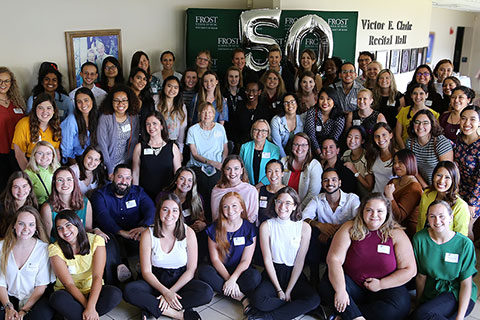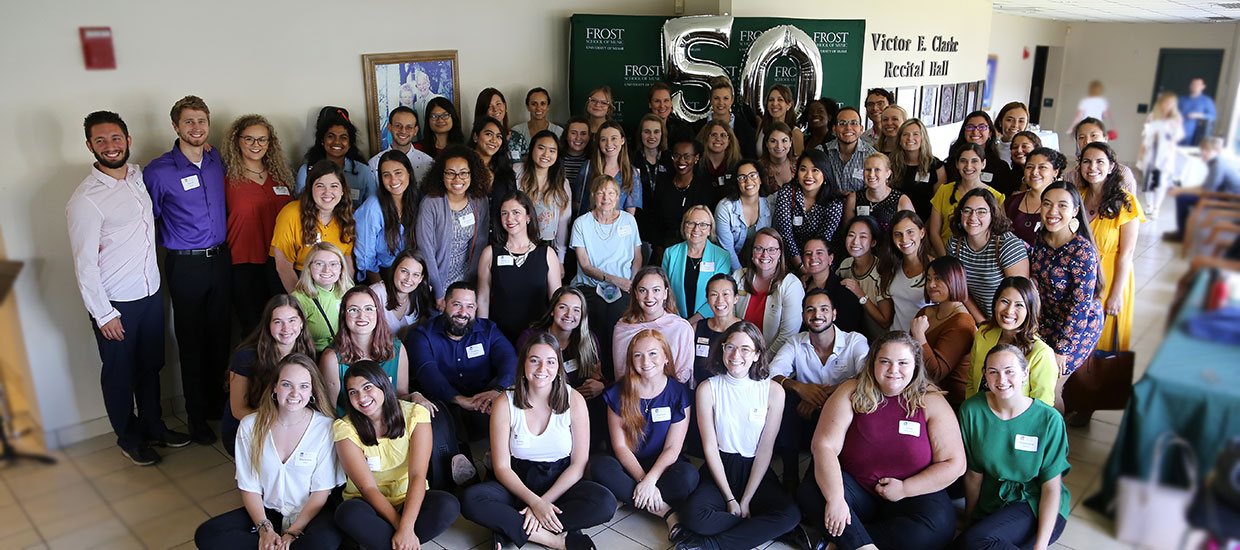The Music Therapy program at the Frost School of Music has grown exponentially from its modest beginnings in 1969. Today, it is home to 65 music therapy majors across three different music degrees (bachelor’s, master’s, and Ph.D.). So it was fitting that the program commemorated its 50th anniversary with a retrospective celebration.
The activities began with a three-part afternoon agenda in Clarke Recital Hall on October 5, which was attended by Frost faculty, students, alumni, and supporters. Multi-media presentations about the history of the program were presented by current Ph.D. music therapy faculty, including Associate Dean Shannon de l’Etoile, who joined the faculty in 2001 and served as program director for more than a decade; Associate Professor Teresa Lesiuk, the current program director who joined Frost in 2005 and is the recipient of a 2020 Provost Research Grant; and Assistant Professor of Professional Practice Kimberly Sena Moore, who joined the faculty in 2014 and received a 2018 Arthur Flagler Fultz Research Award.
Then, four 12-minute Frost MTx talks, similar to Ted Talks, were given by invited Frost music therapy alumni: Evelyn Erwin, B.M. ’12; Erin M. Heaslip, M.M. ’11; Carlos-Andres Rodriguez, B.M. ’15; and BriAnne Weaver, M.M. ’07. The talks captivated the audience with stories of professional growth, valuing creativity in those with disabilities, taking time for self-care when caring for others, and demonstrating music interventions that can come about when working with other arts therapists.
The day concluded with an inspiring alumni panel discussion and Q&A about the future of the program, facilitated by Moore. The consensus was that the Frost Music Therapy program would do well to continue its reliance on a science-based model known as neurologic music therapy. This logical approach examines parallels between music perception and production and the psychological and physical needs of the clients or patients. For example, one of the most resilient practices in music therapy, called auditory rhythmic facilitation, is based on the human response to rhythm and how, in turn, the response helps in areas of walking difficulties, such as those seen in patients with stroke or Parkinson’s disease.
The celebration continued into November at a reception held as part of the American Music Therapy Annual Conference in Minneapolis, Minnesota. "It was great fun when Frost music therapy alumni from different decades and from around the nation shared their stories of attending Frost," says Lesiuk. "Every decade was accounted for at this celebration. It was a truly inspiring evening with a close community and commitment to the profession."
Originally from the 2020 edition of Score Magazine.





